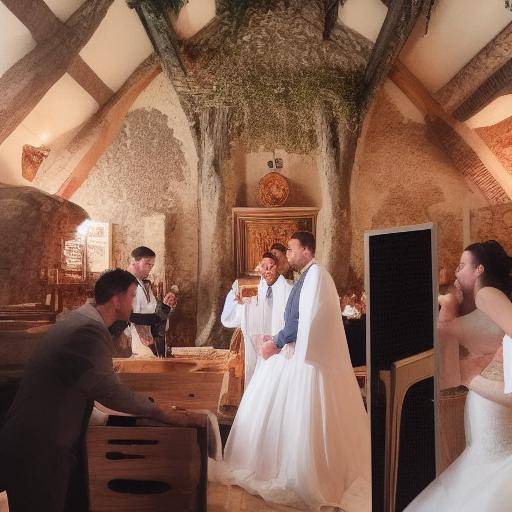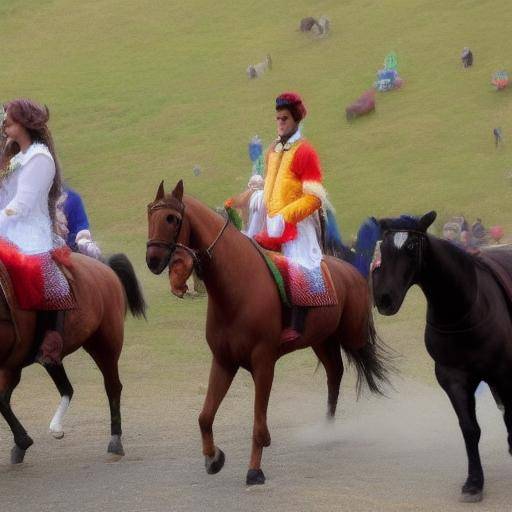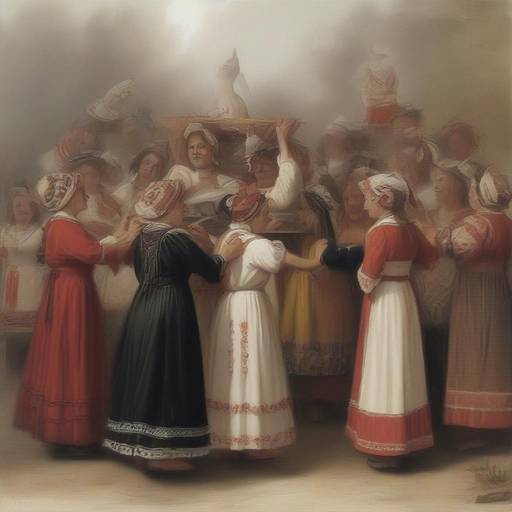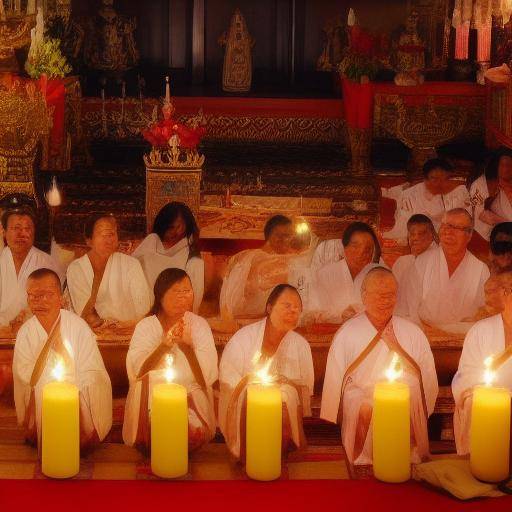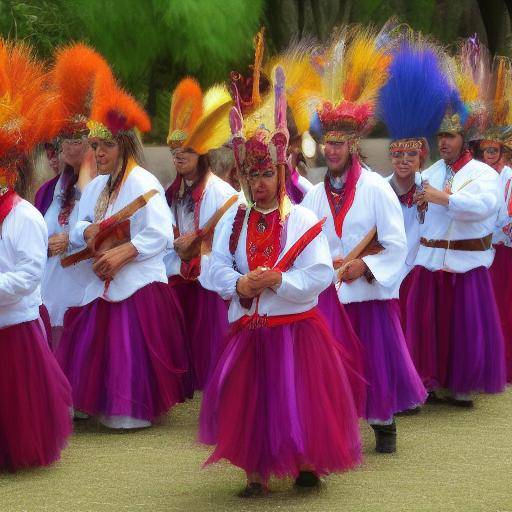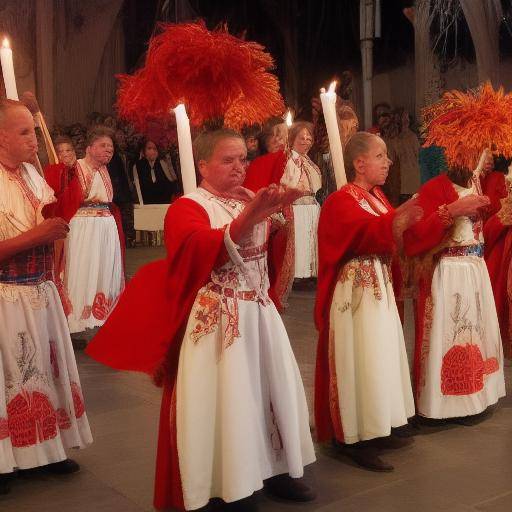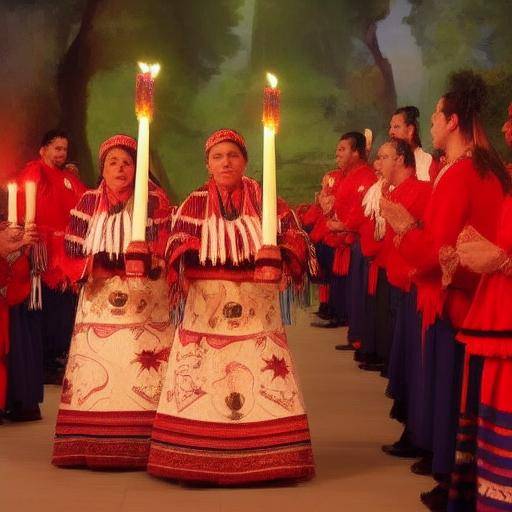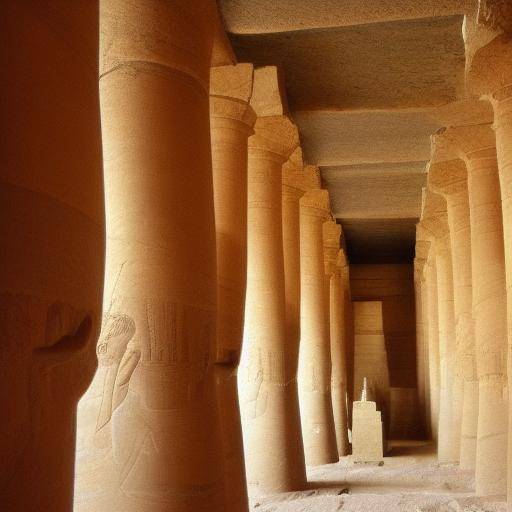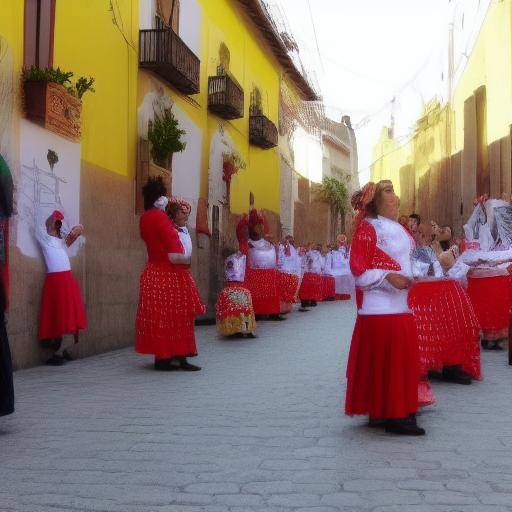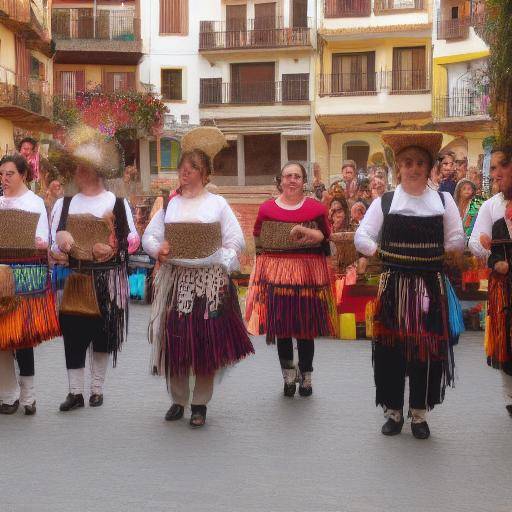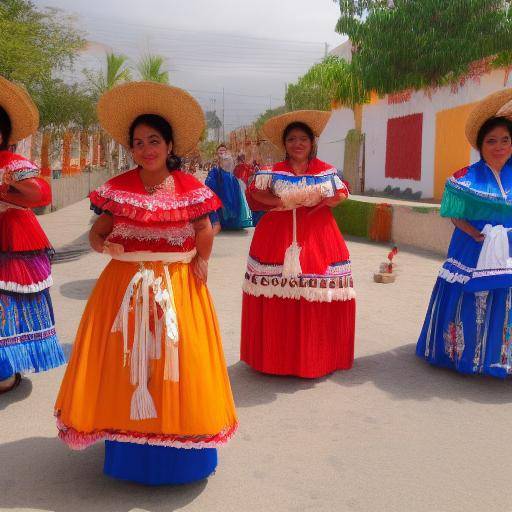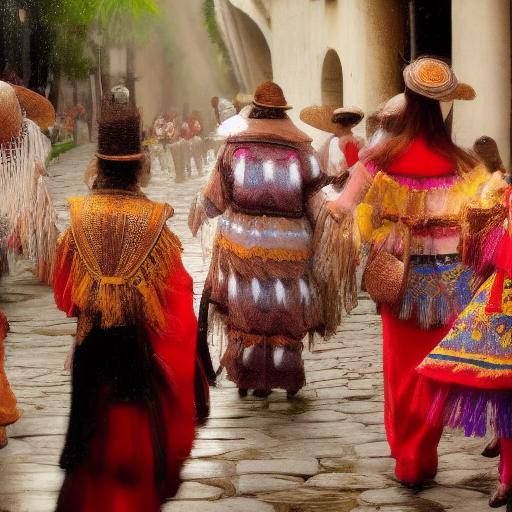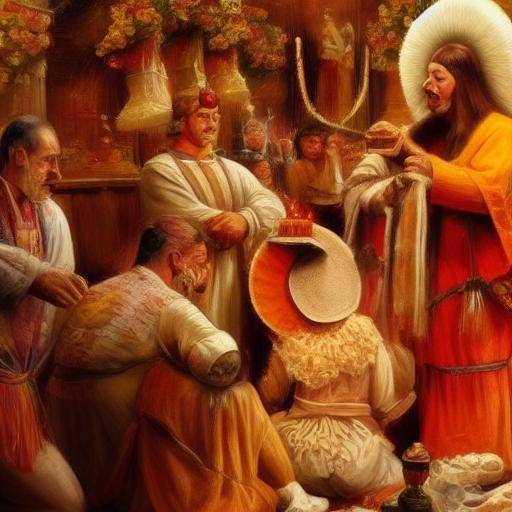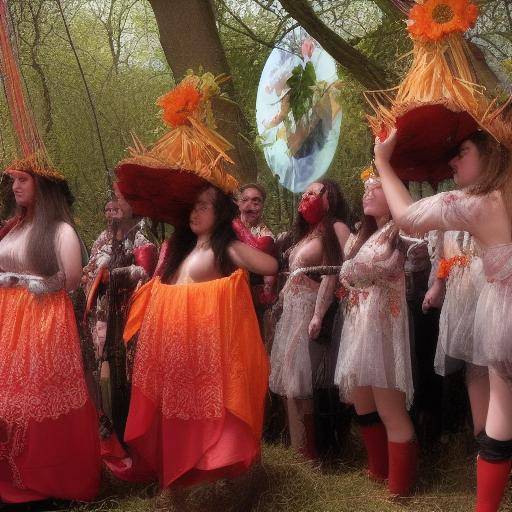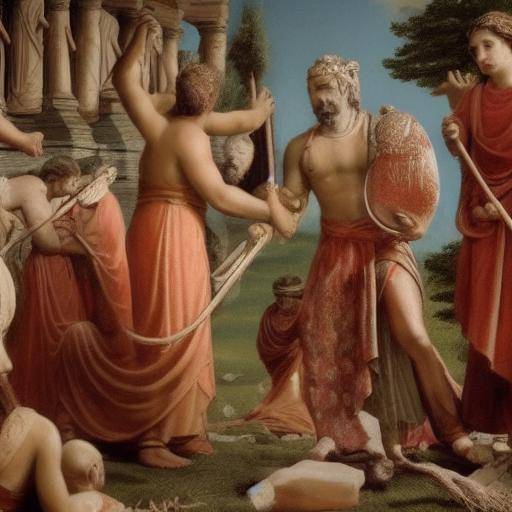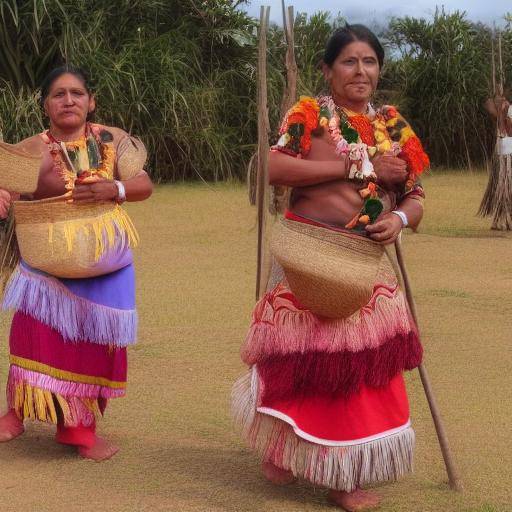
Amazonian culture is an invaluable treasure of ancestral traditions that has endured over the centuries. In this article, we will explore the wealth of ancestral traditions in Amazonian culture and its rituals, from its origins to future trends. From historical importance to contemporary practices, this comprehensive analysis offers a holistic view of a cultural legacy that has resisted the test of time.
Introduction: Life in the Amazon Forest
The Amazon, with its vast biological and cultural diversity, hosts countless ancestral traditions that have been transmitted from generation to generation. These practices are not only manifestations of cultural identity, but also the basis for the cosmovision and survival of indigenous communities that have guarded this ancestral heritage.
History and Background: The Legacy of Past Generations
The beginning of these ancient traditions dates back to time immemorial, rooted in the deep connection that the Amazonian communities maintain with nature. The symbiotic relationship between man and the natural environment has shaped these practices over centuries, giving them unique authenticity and transcendence.
The arrival of European colonizers brought with it a cultural interaction that integrated foreign elements into the Amazonian traditions, challenging the integrity of these practices. Despite this, many of the ancestral traditions have endured, adapting to new contexts and challenges.
Deep Analysis: Defying Time and Change
Although ancient traditions have faced various challenges throughout history, their resilience has been remarkable. Today, these practices continue to be a fundamental part of the cultural identity of the Amazonian communities, serving as a source of strength and resistance in the midst of modernity.
One of the greatest challenges today is the preservation of these traditions in an increasingly globalized world, where external influences can erode the integrity of ancestral practices. However, the resurgence of interest in Amazon culture and the recognition of its value on the part of global society are promoting significant efforts for its preservation and revitalization.
Comprehensive Review: The Cultural and Social Importance of the Ancestral Traditions
Ancient traditions in Amazonian culture play a key role in social cohesion, knowledge transmission and the preservation of cultural heritage. These practices not only enrich the spiritual and emotional life of communities, but also provide unique knowledge about biodiversity, the sustainable use of natural resources and traditional medicine.
The rituals associated with ancient traditions, from sacred ceremonies to healing practices, reflect the profound understanding that the Amazonian communities have of their natural environment and spiritual connections. The importance of these rituals goes beyond the ceremonial, as they feed the social fabric and strengthen the cultural identity of the communities.
Comparison Analysis: A View to Various Practices and Beliefs
Although each community in the Amazon presents a unique wealth of ancestral traditions, it is possible to identify common elements that unite these practices. Reverence by nature, the worship of spirits, and the celebration of natural cycles are recurring themes that transcend cultural differences, showing the essential unity in the diversity of Amazon culture.
Practical Tips and Accionable Recommendations: Connecting with Amazon Culture
For those interested in exploring the ancestral traditions of Amazonian culture, it is essential to approach with respect and sensitivity towards indigenous communities. Some practical recommendations include seeking guidance from local guides, respecting cultural norms and restrictions, and supporting initiatives that promote the preservation of ancestral traditions.
Perceptions of Industry and Expert Reviews: Perspectives and Reflections
Ancient traditions in Amazonian culture not only have an intrinsic value for local communities, but also offer unique perspectives for medicine, environmental conservation and spirituality. Experts and researchers recognize the importance of learning from these millennial practices, not only as a cultural legacy, but also as a source of wisdom to address contemporary challenges.
Case Studies and Applications in Real Life: From Past to Present
Through case studies, it is possible to appreciate how ancestral traditions in Amazonian culture remain relevant in the daily lives of indigenous communities. From the use of medicinal plants to sustainable farming practices, these traditions demonstrate their relevance today, offering valuable lessons for society as a whole.
Future Trends and Predictions: Toward a Sustainable Morning
As the world recognizes the importance of preserving cultural diversity and traditional knowledge, a promising future for ancestral traditions in Amazon culture is seen. Global awareness of the importance of these practices is expected to continue to grow, which could catalyse broader efforts for their safeguarding and revitalization.
Conclusion: Celebrating the Cultural Heritage of the Amazon
Ancient traditions in Amazonian culture embody accumulated wisdom over generations, offering valuable lessons on the harmony between human beings and nature. In preserving and celebrating these traditions, the cultural legacy of the Amazonian communities is not only honoured, but the global understanding of interconnection between people and the environment is also enriched.
There is no doubt that ancestral traditions in Amazonian culture represent an invaluable legacy that deserves to be protected and appreciated. As we explore this fascinating world of rituality and ancestrality, we can find inspiration to build a future where respect for the land and its inhabitants is the foundation of our existence.
FAQs
What are some examples of ancestral rituals in Amazonian culture?
Ancient rituals in Amazonian culture include tribute ceremonies to nature, healing rituals with medicinal plants, celebrations of natural cycles, and passage rites that mark important transitions in the life of indigenous communities.
How are ancestral traditions transmitted in the Amazonian culture of generation to generation?
The ancestral traditions are transmitted orally, through ceremonial practices, and through the direct instruction of the elders to the younger generations. Observation and active participation in cultural activities also play a crucial role in knowledge transmission.
What is the importance of rituals in Amazonian culture?
The rituals in the Amazonian culture are fundamental to maintaining the balance between the spiritual and material world, as well as to strengthen the sense of community, identity and belonging. In addition, rituals play a crucial role in the preservation and transmission of traditional knowledge.
How do ancestral traditions in Amazonian culture contribute to the conservation of the environment?
Ancient traditions in Amazonian culture promote deep respect for nature and foster practices of sustainable use of natural resources. Traditional medicine, ancestral agriculture and rituals of veneration of nature are examples of how these traditions contribute to environmental conservation.
####What are some current challenges facing ancestral traditions in Amazonian culture? Current challenges include loss of traditional knowledge due to the influence of modernity, pressure on indigenous territories for extractive activities and climate change, which threatens the ecosystems that sustain these practices.
How can the general public support the preservation of ancestral traditions in Amazonian culture?
Support for initiatives that promote the preservation of ancestral traditions, the dissemination of accurate information on Amazon culture, the adoption of sustainable practices and respect for indigenous customs and territories are important ways in which the public can contribute to the preservation of these valuable traditions.
In short, ancestral traditions in Amazonian culture represent an invaluable legacy that transcends time, offering a unique window to the relationship between humanity and nature. In understanding and appreciating these practices, we not only honor the rich traditions of the Amazonian communities, but also learn significant lessons about harmonious coexistence with the planet we inhabit.






